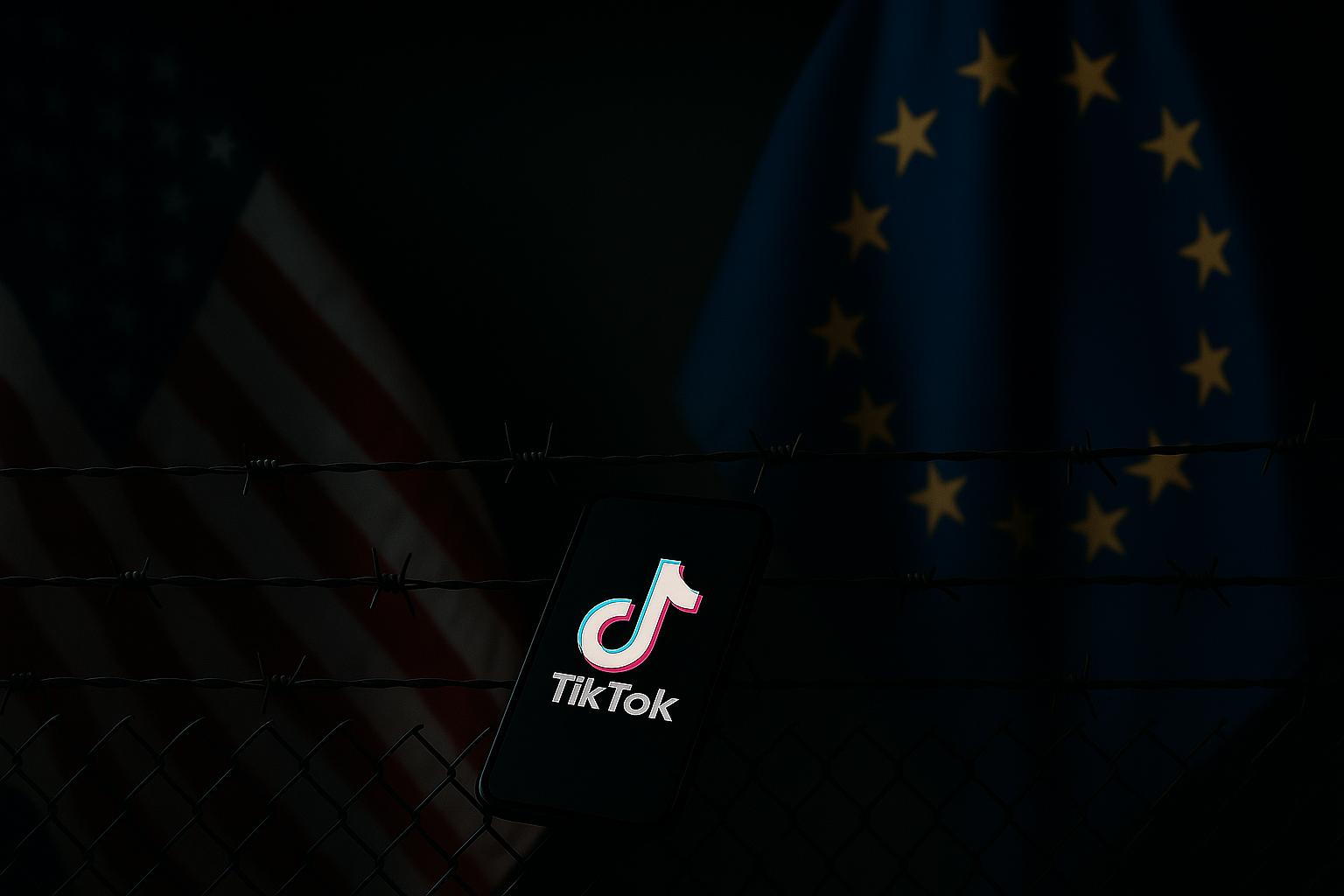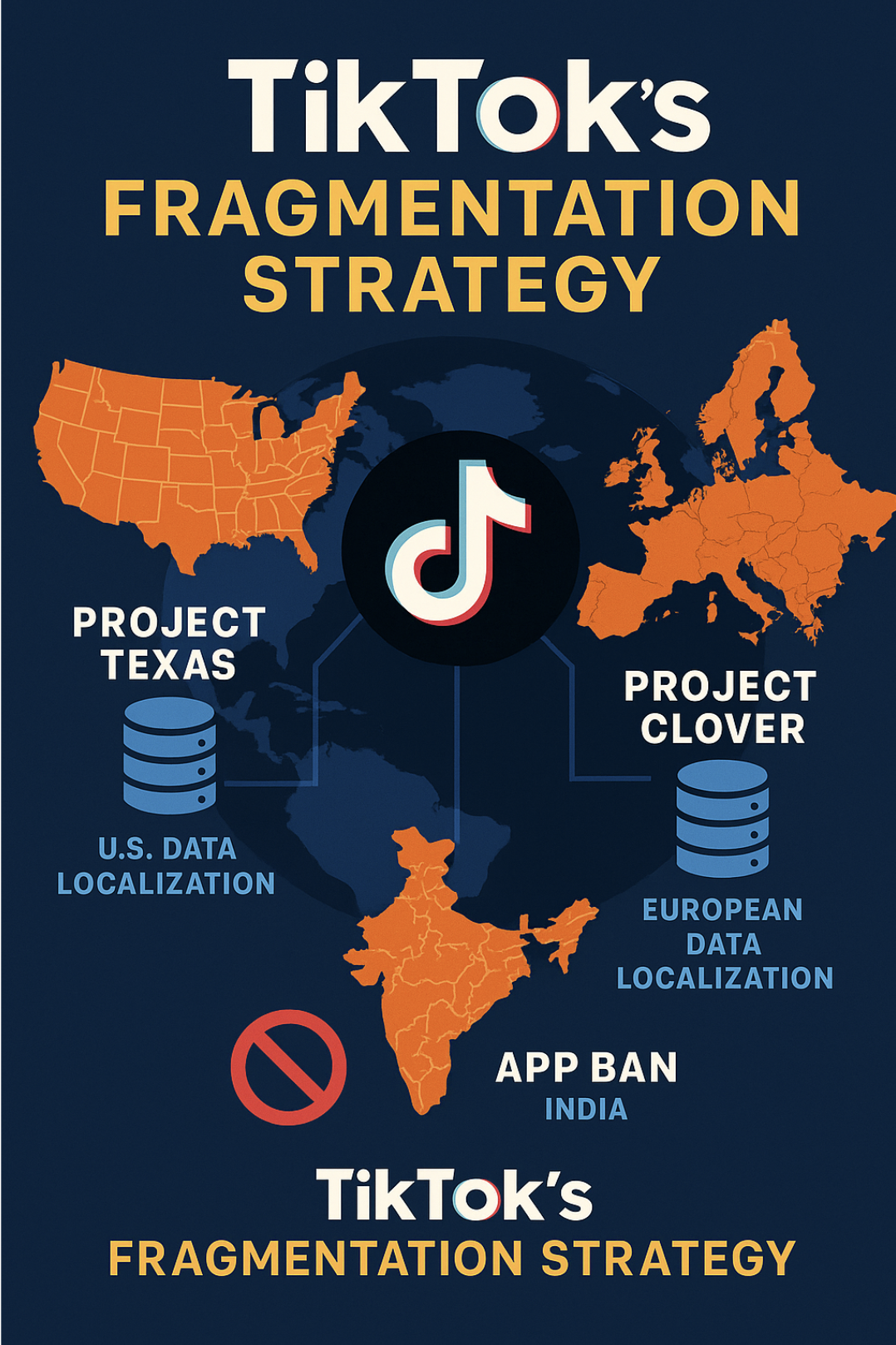TikTok Constructs Digital Borders to Survive Regulatory Assault


The vision of a global, open internet is increasingly under threat from not just authoritarian regimes, but also from democratic governments," observed Adam Segal, director of the Digital and Cyberspace Policy program at the Council on Foreign Relations.
No company embodies this tension more vividly than TikTok, as it scrambles to construct a patchwork of national data silos to preserve its global footprint. ByteDance's social media juggernaut finds itself caught in a geopolitical vice.
The U.S. has passed legislation requiring the company to divest its American operations or face a nationwide ban. Europe scrutinizes its data practices under GDPR. India has already banished the app entirely. In response, TikTok is pioneering a fragmentation strategy that may redefine how global platforms operate in an era of digital nationalism.
Why TikTok’s Data Wall Strategy Could Undermine Its Global Advantage
The centrepiece of TikTok's regulatory response is Project Texas, a $1.5 billion initiative to store U.S. user data exclusively on Oracle Cloud servers, with operations overseen by a separate U.S.-based entity. Similar data localization efforts are underway in Europe under the Project Clover initiative. This represents a profound strategic pivot for a platform designed to seamlessly connect creators and audiences across borders. "Project Texas is real, the protection and security that it provides is real, and the answer to national security concerns is real," insists Michael Beckerman, TikTok's VP of Public Policy for the Americas.
However, these assertions mask a deeper reality: TikTok is being compelled to dismantle the very architecture that propelled its meteoric rise. The fragmentation strategy reveals a fundamental paradox in platform economics. TikTok's competitive advantage stems from its unified recommendation algorithm that pools insights from global user behaviour.
Partitioning this system into national silos undermines the very network effects that drive its success. Each digital border erected weakens the platform's core value proposition.
How Digital Sovereignty Is Forcing a Rethink of Global Platform Design
TikTok's struggle represents more than one company's regulatory headache. It signals a profound shift in the operating environment for all global technology platforms. The era of borderless digital expansion—when tech companies could scale across jurisdictions with minimal regulatory friction—appears to be coming to an end.
For startup founders and product architects, this transformation demands a fundamental rethinking of platform design. Future-proofed technology stacks must now anticipate regulatory fragmentation from inception, building modularity that can accommodate national-level data segregation without crippling core functionality. Meta's global infrastructure already incorporates regional data centers and governance structures.
Google maintains country-specific versions of its services. But TikTok's predicament demonstrates that even these accommodations may prove insufficient as digital sovereignty concerns intensify.
Why Regulatory Fragmentation Is Raising the Barrier to Global Scale
The expenses associated with regulatory fragmentation extend beyond infrastructure. TikTok reportedly spends $2 million daily on its lobbying and compliance efforts. The company has hired thousands of content moderators to maintain distinct content policies across jurisdictions.
Engineering resources have been diverted from product innovation to security architecture. This regulatory tax particularly disadvantages emerging platforms. While established tech giants can absorb compliance costs, startups face a steeper path to global scale. The result may be an entrenched advantage for incumbent platforms and a bifurcated global internet where different user experiences exist across national boundaries.

How Global Platforms Are Adapting to the Era of Digital Borders
As digital borders harden, global platforms face a strategic inflection point. TikTok's experience offers a preview of the adaptations required in this new landscape:
Architecting for modularity from day one
Incorporating regional data sovereignty into core infrastructure
Building redundant compliance systems across jurisdictions
Developing algorithms that can function effectively with partitioned data.
Whether TikTok survives its regulatory gauntlet remains uncertain. But its response—constructing digital borders around national user bases—may become the template for global platforms navigating an increasingly fractured digital landscape. In this new reality, the dream of a truly borderless internet appears increasingly distant. The question now isn't whether digital borders will emerge, but how platforms will adapt to a world where technological possibility remains global while governance has become stubbornly national.